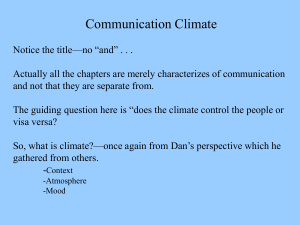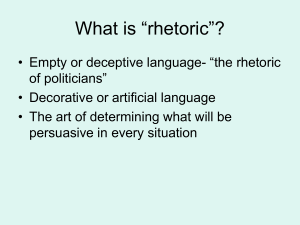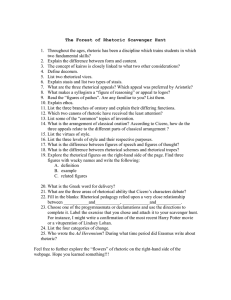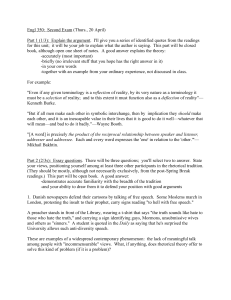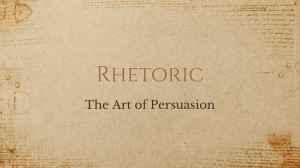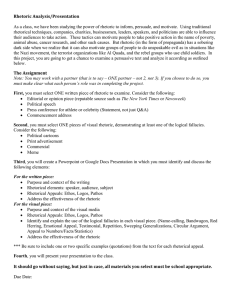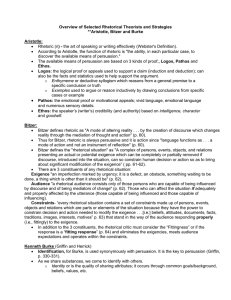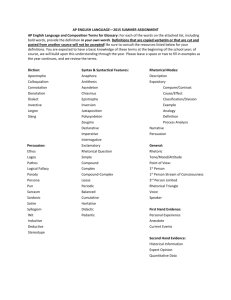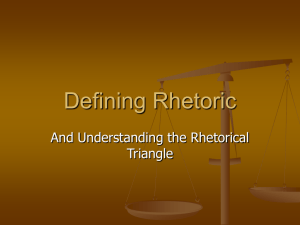Understanding Rhetorical Situations with Bitzer, Vatz, & Consigny
advertisement
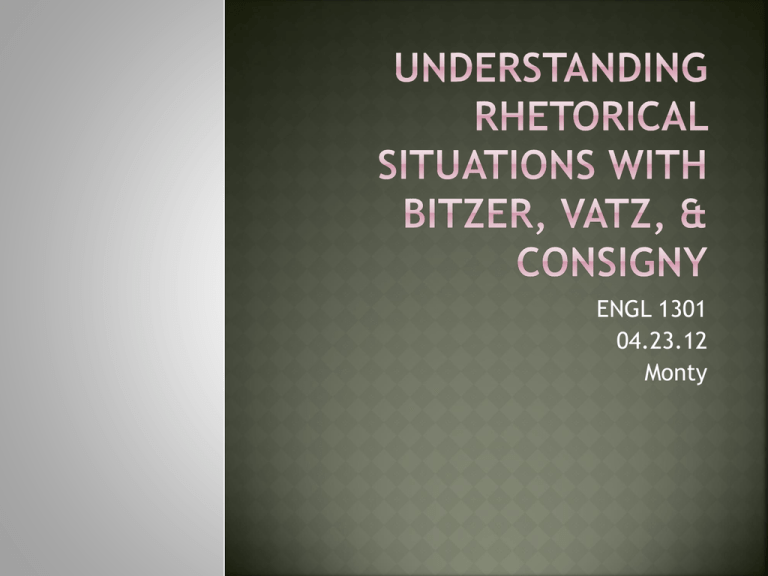
ENGL 1301 04.23.12 Monty A three-part “conversation” between Lloyd Bitzer, Richard Vatz, and Scott Consigny Dealt with rhetoric as it pertains to persuasive, social situations Argued for different understandings of audience Demonstrated a triangulated approach to epistemology Bitzer (1968) Concerned with the contexts that prompted people to write Situation gives existence to the discourse, not the other way around Rhetoric is pragmatic The rhetorical situation is comprised of: exigency, audience, and restraints Ethos is malleable Vatz (1973) Backwards Bitzer Situation is tied to the interpretations of the speaker Rhetorical situations are not static, neither are morals and ethics Meaning is rhetorically constructed (social epistemology) Consigny (1974) Not every rhetorical situation involves a clear-cut problem The rhetor isn't there to answer questions or solve problems, but to ask questions and recognize problems; must posses integrity and recptivity Problems do not pose themselves Rhetoric and a “heuristic” and “managerial art” Topoi, topics, and common places Map the entire article, indicating the author’s main points and arguments Due via email by Friday, April 27 @ 11:30 PM Individual Compose a minilesson explaining the author’s main points and arguments Present findings to class on Wednesday, April 25, 10-15 minutes Group
